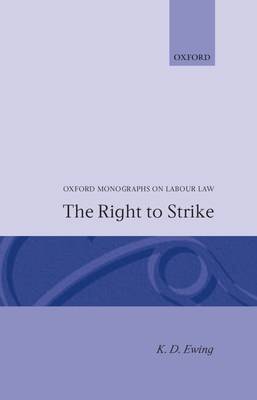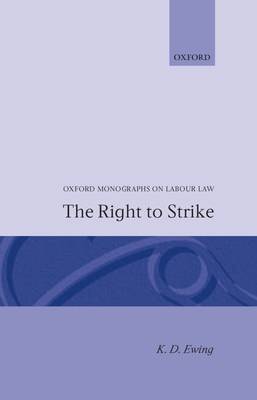
- Afhalen na 1 uur in een winkel met voorraad
- Gratis thuislevering in België vanaf € 30
- Ruim aanbod met 7 miljoen producten
- Afhalen na 1 uur in een winkel met voorraad
- Gratis thuislevering in België vanaf € 30
- Ruim aanbod met 7 miljoen producten
Zoeken
Omschrijving
The right to strike in Britain is one of the most important, albeit neglected, issues in modern labor law. It is also one of the most controversial, particularly since the dismissal of 5,500 workers at Wapping, which led not only to calls for law reform, but also to condemnation of the British government by the ILO. Concentrating on the hitherto neglected issue of the liability of union members and their families, The Right to Strike examines the effect of strikes and other industrial action on the contract of employment, the question of the payment of wages to those engaged in industrial action, and the social security implications of unemployment caused by trade disputes. This illuminating study will be of special interest to students and scholars of labor law and industrial relations; labor lawyers, trade unionists, and journalists.
Specificaties
Betrokkenen
- Auteur(s):
- Uitgeverij:
Inhoud
- Aantal bladzijden:
- 204
- Taal:
- Engels
- Reeks:
Eigenschappen
- Productcode (EAN):
- 9780198254393
- Verschijningsdatum:
- 11/04/1991
- Uitvoering:
- Hardcover
- Formaat:
- Genaaid
- Afmetingen:
- 164 mm x 241 mm
- Gewicht:
- 489 g

Alleen bij Standaard Boekhandel
+ 286 punten op je klantenkaart van Standaard Boekhandel
Beoordelingen
We publiceren alleen reviews die voldoen aan de voorwaarden voor reviews. Bekijk onze voorwaarden voor reviews.











